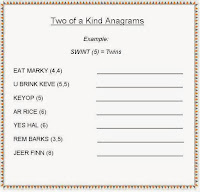Techniques for Vocabulary Improvement
“Prolonged thought about the words which we ordinarily use to think with can produce a momentary aphasia. I think it is to be welcomed. It is well we should become aware of what we are doing when we speak, of the ancient, fragile, and (well used) immensely potent instruments that words are.”
-CS Lewis 'Studies in Words'
While it is not, strictly speaking, highly critical to have a wide and extensive lexicon, it is very useful in order to undertake not only detachment or vanishment of simply conceptual language content, but be able, as well, to give it a function of expressing or stimulating emotion, or both respectively.
We find that, by combining both the conceptual and emotional sides of language expression, we come to a two-way traffic dynamic in our words, where the flow is not static, motionless, and airless-- it is pulsating, where, even when they mesh to a blur of language and inarticulate vocal sounds, it is exactly what we ultimately desire in order to find its communicatively palpable substance.
There are numerous activities that can be utilized, mainly outside the classroom, to enhance vocabulary. For instance, reading, conversations, word games, etc. Reading has been an efficient tool, as it not only involves learning foreign idioms and words, but- inasmuch as it pertains ESL students- foreign cultures, interesting characters (which stimulate the imagination so as to be able to learn language from a tangible perspective), and foreign affairs as a whole.
Game examples include the following:
- Crossword Puzzles
- Anagrams
- Word Jumble
- Scrabble
- Boggle
Ultimately, there are so many other vocabulary enhancing techniques and activities that can be used; for instance, index cards, voice recordings, etc. However, a ground level knowledge of its benefit shall suffice for this post.


No comments:
Post a Comment